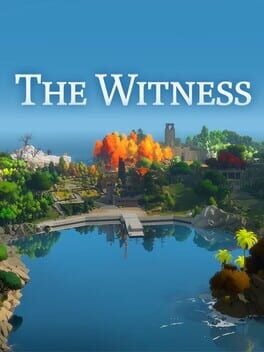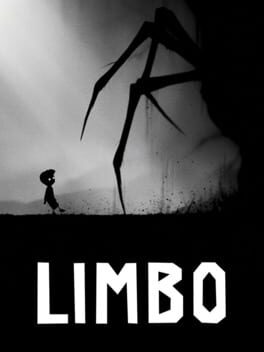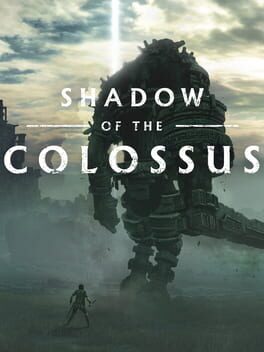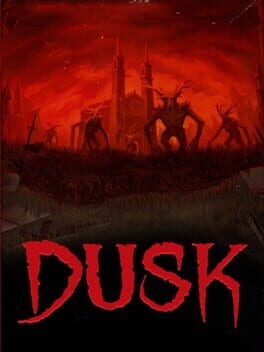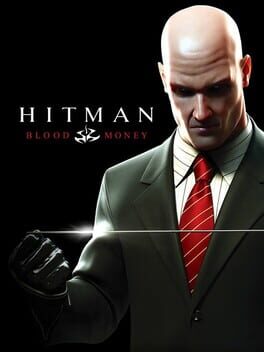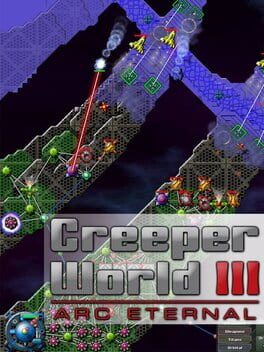SpineReader
27 Reviews liked by SpineReader
The Witness
2016
Most of the people who tell you they want games to be seen as art are lying.
I don't just mean in the sense that "gamers want games to be art but complain when people critique their problematic elements". That is true, but moreover, another side mostly composed of quirky indie fans often gets ignored. Most of the people who talk about "games as art" are really talking about "art as games". People have ideas about what makes great art: stories, characters, music, atmosphere, visuals, animation, setting; this is what a game needs to be great art, it needs to have the same elements that make literature great, or film. Most of these people will say that in order to be art, games have to "more than just games". Some will even say that games need to stop being games altogether.
The Witness may be the single greatest game as a piece of art yet, and it may never get the credit it deserves simply because it is a video game, and it isn't trying to be something else. The way it so totally and coherently expresses itself through its communication and psychology, through its singular mechanic of movement. Navigation in macrocosm and microcosm. It's a game you play on a virtual island, a game you play on a screen within a screen, a game that you play in your head.
I don't just mean in the sense that "gamers want games to be art but complain when people critique their problematic elements". That is true, but moreover, another side mostly composed of quirky indie fans often gets ignored. Most of the people who talk about "games as art" are really talking about "art as games". People have ideas about what makes great art: stories, characters, music, atmosphere, visuals, animation, setting; this is what a game needs to be great art, it needs to have the same elements that make literature great, or film. Most of these people will say that in order to be art, games have to "more than just games". Some will even say that games need to stop being games altogether.
The Witness may be the single greatest game as a piece of art yet, and it may never get the credit it deserves simply because it is a video game, and it isn't trying to be something else. The way it so totally and coherently expresses itself through its communication and psychology, through its singular mechanic of movement. Navigation in macrocosm and microcosm. It's a game you play on a virtual island, a game you play on a screen within a screen, a game that you play in your head.
Dark Souls
2011
Dark Souls is a beautiful forest full of ugly trees, a master's painting held together with duct tape and hot glue.
Coming back to Dark Souls and beating it for the first time in at least a couple years, it was honestly shocking how well-paced the game was compared to how I remember it. I remember the first time I played this game I spent more than ten hours just trying to ring the first bell, wrestling with complex, unfamiliar controls and the nuances of the combat. The latter half of the game is generally considered worse, though I've also generally considered it to be easier. I wonder to what degree that might have been warped by the fact that Anor Londo is, ostensibly, the last time in the game that the player is really asked to learn something new, the learning curve being mistaken for the difficulty curve.
Visually it's mostly aged surprisingly well, character detail and texture quality is largely more than acceptable, especially for the time. Even if the specular effects on reflective surfaces don't look particularly "natural", they look good, and definitely more striking than the more recent remastered version. The main blemish is that with the DSfix mod, playing with much greater visual clarity than any official release has offered (due to both resolution and adjustable depth of field), the pop-in is really noticeable; there are times when entering a small room, you will see objects appear in the opposite corner as you pass through the door.
Combat is the main area where I think the first few of these games don't quite knock it out of the park, though fighting regular enemies here is typically more than manageable. Boss fights are probably the single greatest weakness of this game. Many of them are total pushovers, and when they do present a challenge they either highlight how unrefined this is compared to future installments, or are just plain bad.
But, Dark Souls more than makes up for it by having one of the most interesting worlds ever seen in a video game, both in its narrative elements, and perhaps more importantly in its construction. From creation myth to conspiracy, from the cathedrals to the sewers to the rot, fire, death, and mysteries further down. Everything has its place, and every place fits perfectly together. Though, the individual areas themselves are often small or barren, with many failing to offer the same kinds of gauntlets seen in both Demon's Souls and in future games. Demon Ruins and Lost Izalith are the obvious worst offenders, and are typically argued to be flat out unfinished, though Darkroot and Blighttown don't feel much better.
Dark Souls is more than the sum of its parts though, and even when those parts don't shine on their own, they at least give a strong thematic support to the rest of the package.
Coming back to Dark Souls and beating it for the first time in at least a couple years, it was honestly shocking how well-paced the game was compared to how I remember it. I remember the first time I played this game I spent more than ten hours just trying to ring the first bell, wrestling with complex, unfamiliar controls and the nuances of the combat. The latter half of the game is generally considered worse, though I've also generally considered it to be easier. I wonder to what degree that might have been warped by the fact that Anor Londo is, ostensibly, the last time in the game that the player is really asked to learn something new, the learning curve being mistaken for the difficulty curve.
Visually it's mostly aged surprisingly well, character detail and texture quality is largely more than acceptable, especially for the time. Even if the specular effects on reflective surfaces don't look particularly "natural", they look good, and definitely more striking than the more recent remastered version. The main blemish is that with the DSfix mod, playing with much greater visual clarity than any official release has offered (due to both resolution and adjustable depth of field), the pop-in is really noticeable; there are times when entering a small room, you will see objects appear in the opposite corner as you pass through the door.
Combat is the main area where I think the first few of these games don't quite knock it out of the park, though fighting regular enemies here is typically more than manageable. Boss fights are probably the single greatest weakness of this game. Many of them are total pushovers, and when they do present a challenge they either highlight how unrefined this is compared to future installments, or are just plain bad.
But, Dark Souls more than makes up for it by having one of the most interesting worlds ever seen in a video game, both in its narrative elements, and perhaps more importantly in its construction. From creation myth to conspiracy, from the cathedrals to the sewers to the rot, fire, death, and mysteries further down. Everything has its place, and every place fits perfectly together. Though, the individual areas themselves are often small or barren, with many failing to offer the same kinds of gauntlets seen in both Demon's Souls and in future games. Demon Ruins and Lost Izalith are the obvious worst offenders, and are typically argued to be flat out unfinished, though Darkroot and Blighttown don't feel much better.
Dark Souls is more than the sum of its parts though, and even when those parts don't shine on their own, they at least give a strong thematic support to the rest of the package.
Dark Souls III
2016
Dark Souls III is all killer, all filler, and I'm dead and stuffed.
Regardless of one's opinion on this or any of the other more recent From Software games, I think it somewhat uncontroversial to say that the somewhat polarized reception of its sequels and successors only serve to highlight the strength of the original Dark Souls. Despite whatever imperfections it may have had, Dark Souls was a game that did so many things right that a lot of people found wildly different reasons to love it. Dark Souls is in so many facets so close to the absolute essential core of what makes video games great that even if another game could get even closer in even one aspect, it would always come at the cost of something else.
Dark Souls III's core gameplay is most similar to the original Dark Souls, but with its animations and character control fine-tuned to perfection; this is the first From Software game where it feels good to simply move around. The game has all of the quality of life improvements that began as band-aid fixes in Dark Souls II. Every level in the game is as detailed, sprawling, and multi-layered as one of Bloodborne's best, yet their arrangement within the world as a whole is as transparent as in the first game. Speaking on gameplay specifically, calling Dark Souls III a "greatest hits" of the series is still selling it short. It's not just borrowing the most memorable situations and set-pieces from previous games, it's picking and choosing elements of the games' systems and structures themselves, and still building upon them yet.
One of my favorite moments in Dark Souls was on my second playthrough, reaching the tower before the Taurus Demon boss fight, and realizing just how much of the world I could see. Picking out landmarks and realizing how (despite being rendered in much lower detail than it would be up close) decidedly congruous the world was, and more importantly how intentional it all felt. The popular phrase when showing a game's scale is to point at something in the distance and say "you can go there", but "there" is often not a place of any import, and the "go"-ing process is rarely anything all that special. One of Dark Souls III's earliest moments is the game giving the player a similar view of virtually every above-ground area of the game, with only a couple of places barely obscured (though one should not assume that the game has nothing to hide, as it in fact has some of the most obtuse secrets in the series). At virtually any point in the game the player can look around, see where they've been, where their goal lies, and think of all the challenges they overcame to get to where they are. While Dark Souls may have had a more interconnected world and the potential for more diverse routes, I genuinely believe that Dark Souls III surpasses it in both level design and in its believability as a space.
While the player's quest is ultimately to defeat all of the Lords of Cinder and link the first flame once more, the bulk of the journey through the aforementioned spaces is spent hunting down one in particular: Aldrich. A web of interconnected side-quests eventually narrows into this encounter, chasing him from the Cathedral of the Deep to Irithyll of the Boreal Valley. A trek that lasts the better part of the entire game ends in Anor Londo, perhaps the most hallowed location from the original game, its cathedral now stripped from its original context, a sort of museum artifact for some invading heretic. The player finds within an avatar of pure consumption, puppeting around one of surprisingly few named returning fan-favorite characters. The message could not be more clear, the anti-climax could perhaps only barely be more intentional, this is an absolutely naked indictment. Dark Souls has to end, because if it continues it will turn to sludge and cannibalize everything you love about it.
The heart of Dark Souls III's narrative is, like Dark Souls II before it, ultimately about the futility of this whole sequel project. Dark Souls II did do the roar, but it also smashed the cake, all the while yelling "Ya like that!? Huh?!"
As Dark Souls III plays its hand it feels more like the game has sat you down to sternly say "listen, we know you like this, and we'll give it to you one more time, but this is it." I personally think that video games' status as commercial entertainment products has been pretty much a disaster for their ability to tell stories, and a side effect of this is that some of the most potent stories they can tell are often bittersweet metanarrative musings on this predicament. Dark Souls III may not be the absolute strongest example of this, but you absolutely could do so, so much worse, and its real triumph is in delivering a compelling version of this story in balance with just being a plain fantastic gameplay experience.
The DLC only makes it more clear, with its principle locations being another world, plagued with rot and its denizens begging for death, and the entire Dark Souls universe compacted like trash. Dark Souls III's world, the "converging lands", was already a kind of new Pangaea, the different continents of the Lords of Cinder merging together into a tangled mess of ravines and canyons. By the end of the Ringed City DLC, everything has compressed together to the point where all that's left is an endless desert of ash. The final goal of these DLC areas, the finale of the entire series, is to help a certain NPC paint a new world. What is this world? It doesn't matter. Giving some clear-cut explanation, like "It's Bloodborne! Or Demon's Souls!" would completely undermine the entire conclusion.
The only thing that matters is that it's new, that it's something else.
One NPC in the Ashes of Ariandel DLC says, specifically, that the player must "make the tales true, and burn this world away."
This is the real curse of a zombie franchise, the lack of any real finality will always give every element of its story a kind of impermanence. Without an absolute true ending, anything in the narrative is up for debate, can be rewritten and ret-conned to suit a new installment. Dark Souls II was itself an admission that its own existence meant that there could be no true tale of the original game, and while it initially tries not to let the cat out of the bag, Dark Souls III's grand anti-climax also invalidates a particular player decision in the original game by canonizing only one particular option.
Dark Souls had to end, absolutely end, so that it could be anything at all.
Regardless of one's opinion on this or any of the other more recent From Software games, I think it somewhat uncontroversial to say that the somewhat polarized reception of its sequels and successors only serve to highlight the strength of the original Dark Souls. Despite whatever imperfections it may have had, Dark Souls was a game that did so many things right that a lot of people found wildly different reasons to love it. Dark Souls is in so many facets so close to the absolute essential core of what makes video games great that even if another game could get even closer in even one aspect, it would always come at the cost of something else.
Dark Souls III's core gameplay is most similar to the original Dark Souls, but with its animations and character control fine-tuned to perfection; this is the first From Software game where it feels good to simply move around. The game has all of the quality of life improvements that began as band-aid fixes in Dark Souls II. Every level in the game is as detailed, sprawling, and multi-layered as one of Bloodborne's best, yet their arrangement within the world as a whole is as transparent as in the first game. Speaking on gameplay specifically, calling Dark Souls III a "greatest hits" of the series is still selling it short. It's not just borrowing the most memorable situations and set-pieces from previous games, it's picking and choosing elements of the games' systems and structures themselves, and still building upon them yet.
One of my favorite moments in Dark Souls was on my second playthrough, reaching the tower before the Taurus Demon boss fight, and realizing just how much of the world I could see. Picking out landmarks and realizing how (despite being rendered in much lower detail than it would be up close) decidedly congruous the world was, and more importantly how intentional it all felt. The popular phrase when showing a game's scale is to point at something in the distance and say "you can go there", but "there" is often not a place of any import, and the "go"-ing process is rarely anything all that special. One of Dark Souls III's earliest moments is the game giving the player a similar view of virtually every above-ground area of the game, with only a couple of places barely obscured (though one should not assume that the game has nothing to hide, as it in fact has some of the most obtuse secrets in the series). At virtually any point in the game the player can look around, see where they've been, where their goal lies, and think of all the challenges they overcame to get to where they are. While Dark Souls may have had a more interconnected world and the potential for more diverse routes, I genuinely believe that Dark Souls III surpasses it in both level design and in its believability as a space.
While the player's quest is ultimately to defeat all of the Lords of Cinder and link the first flame once more, the bulk of the journey through the aforementioned spaces is spent hunting down one in particular: Aldrich. A web of interconnected side-quests eventually narrows into this encounter, chasing him from the Cathedral of the Deep to Irithyll of the Boreal Valley. A trek that lasts the better part of the entire game ends in Anor Londo, perhaps the most hallowed location from the original game, its cathedral now stripped from its original context, a sort of museum artifact for some invading heretic. The player finds within an avatar of pure consumption, puppeting around one of surprisingly few named returning fan-favorite characters. The message could not be more clear, the anti-climax could perhaps only barely be more intentional, this is an absolutely naked indictment. Dark Souls has to end, because if it continues it will turn to sludge and cannibalize everything you love about it.
The heart of Dark Souls III's narrative is, like Dark Souls II before it, ultimately about the futility of this whole sequel project. Dark Souls II did do the roar, but it also smashed the cake, all the while yelling "Ya like that!? Huh?!"
As Dark Souls III plays its hand it feels more like the game has sat you down to sternly say "listen, we know you like this, and we'll give it to you one more time, but this is it." I personally think that video games' status as commercial entertainment products has been pretty much a disaster for their ability to tell stories, and a side effect of this is that some of the most potent stories they can tell are often bittersweet metanarrative musings on this predicament. Dark Souls III may not be the absolute strongest example of this, but you absolutely could do so, so much worse, and its real triumph is in delivering a compelling version of this story in balance with just being a plain fantastic gameplay experience.
The DLC only makes it more clear, with its principle locations being another world, plagued with rot and its denizens begging for death, and the entire Dark Souls universe compacted like trash. Dark Souls III's world, the "converging lands", was already a kind of new Pangaea, the different continents of the Lords of Cinder merging together into a tangled mess of ravines and canyons. By the end of the Ringed City DLC, everything has compressed together to the point where all that's left is an endless desert of ash. The final goal of these DLC areas, the finale of the entire series, is to help a certain NPC paint a new world. What is this world? It doesn't matter. Giving some clear-cut explanation, like "It's Bloodborne! Or Demon's Souls!" would completely undermine the entire conclusion.
The only thing that matters is that it's new, that it's something else.
One NPC in the Ashes of Ariandel DLC says, specifically, that the player must "make the tales true, and burn this world away."
This is the real curse of a zombie franchise, the lack of any real finality will always give every element of its story a kind of impermanence. Without an absolute true ending, anything in the narrative is up for debate, can be rewritten and ret-conned to suit a new installment. Dark Souls II was itself an admission that its own existence meant that there could be no true tale of the original game, and while it initially tries not to let the cat out of the bag, Dark Souls III's grand anti-climax also invalidates a particular player decision in the original game by canonizing only one particular option.
Dark Souls had to end, absolutely end, so that it could be anything at all.
Horizon Zero Dawn
2017
Limbo
2010
Incredible that such a mediocre game ruined a generation of games criticism.
A dead simple fairytale told in the most plodding and bloated possible way. The camera hangs on nothing, the characters talk in a fictional language about things that the player could easily infer if the game had any respect for their intelligence. The apparent moral dilemma that endlessly whirls around discussions of the game is so weak that I don't understand how it seemingly not only defined this game, but for more than a decade defined the height of artfulness that video games could possibly aspire to in the eyes of a certain type of disillusioned game-liker.
The game world is appealing and its scale is sprawling, but it is completely empty and the game will always lead you to the next objective, each of which must be completed in linear sequence. The controls are unresponsive, the encounters are joyless; to be fair there is at least some argument that this is in support of the narrative, but why then tack on such gamey additions as a time attack mode? Why draw attention to the game's tedium by presenting it out of context?
It may just be because my first exposure to Shadow of the Colossus was in the form of a tech demo recreation of one of the game's scenes as a student project over a decade ago, but I don't find the remake to be any particular artistic travesty. To me the audiovisual experience of the original already seems like a ridiculous cacophony of base themes explored in plenty of games predating this one by a decade or more. I have been trying to give this a proper chance on a more or less annual basis, and I have bounced off of it every time.
A dead simple fairytale told in the most plodding and bloated possible way. The camera hangs on nothing, the characters talk in a fictional language about things that the player could easily infer if the game had any respect for their intelligence. The apparent moral dilemma that endlessly whirls around discussions of the game is so weak that I don't understand how it seemingly not only defined this game, but for more than a decade defined the height of artfulness that video games could possibly aspire to in the eyes of a certain type of disillusioned game-liker.
The game world is appealing and its scale is sprawling, but it is completely empty and the game will always lead you to the next objective, each of which must be completed in linear sequence. The controls are unresponsive, the encounters are joyless; to be fair there is at least some argument that this is in support of the narrative, but why then tack on such gamey additions as a time attack mode? Why draw attention to the game's tedium by presenting it out of context?
It may just be because my first exposure to Shadow of the Colossus was in the form of a tech demo recreation of one of the game's scenes as a student project over a decade ago, but I don't find the remake to be any particular artistic travesty. To me the audiovisual experience of the original already seems like a ridiculous cacophony of base themes explored in plenty of games predating this one by a decade or more. I have been trying to give this a proper chance on a more or less annual basis, and I have bounced off of it every time.
Resident Evil 4
2005
Dusk
2018
Divekick
2013
A beautiful game. I love the sheer purity of it, and how streamlined it is while also being full of personality and flavor. Two buttons, that's all you need. Dive and kick. It has mind games, spacing, snappy responsive gameplay, special moves, everything you need in a fighting game. I love the variety of play styles and charm they jammed into the roster, I love all the dumb jokes, and I love playing against folks. It captures the spirit of fighting games with none of the barriers to entry. <3
